25 Things Parents Should Never Say to Their Kids
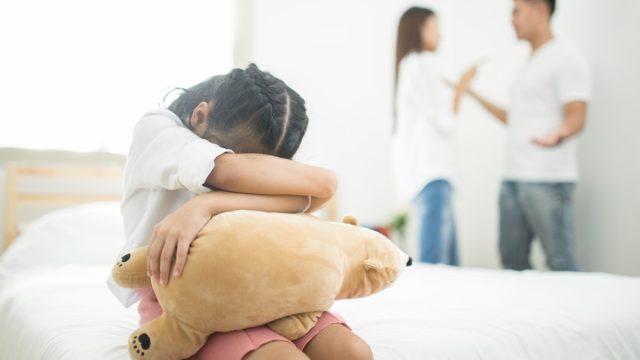
Parenting is an undeniably difficult job—and having your kids at home 24/7 while schools and daycares are closed can make it even more stressful. Unfortunately, that additional layer of stress during an already difficult time can sometimes manifest in ways you’re not intending—like being short with your kids or saying things you don’t mean. If you want to keep your relationship with your children on steady footing, read on for the things parents shouldn’t say to their kids.
1
“You’re so dramatic.”
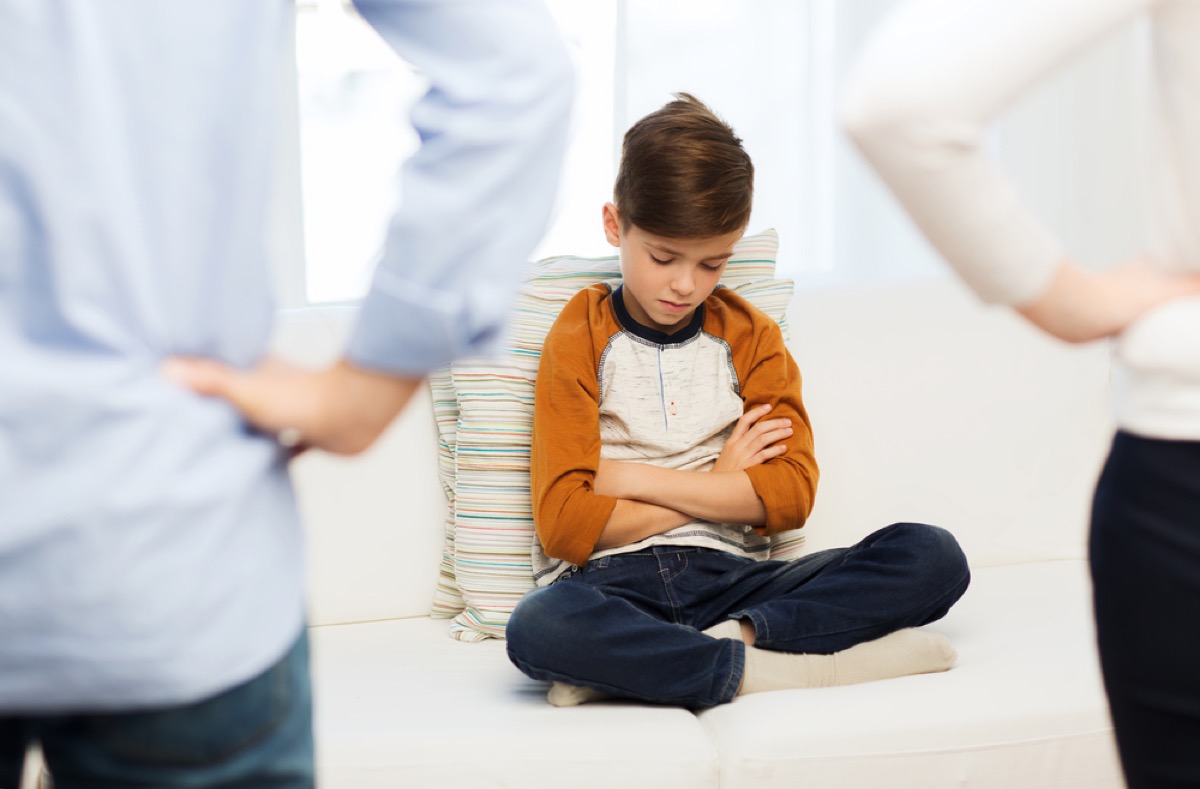
However certain you are that your kid’s behavior is over the top, labeling them “dramatic” when they’re trying to express themselves can have serious long-term consequences.
“Children look to their parents to learn how to manage emotions, so if parents teach them that their feelings are silly, they will grow in to adults who believe that their feelings don’t matter,” explains Kate Loewenstein, LCSW.
2
“You’re selfish.”
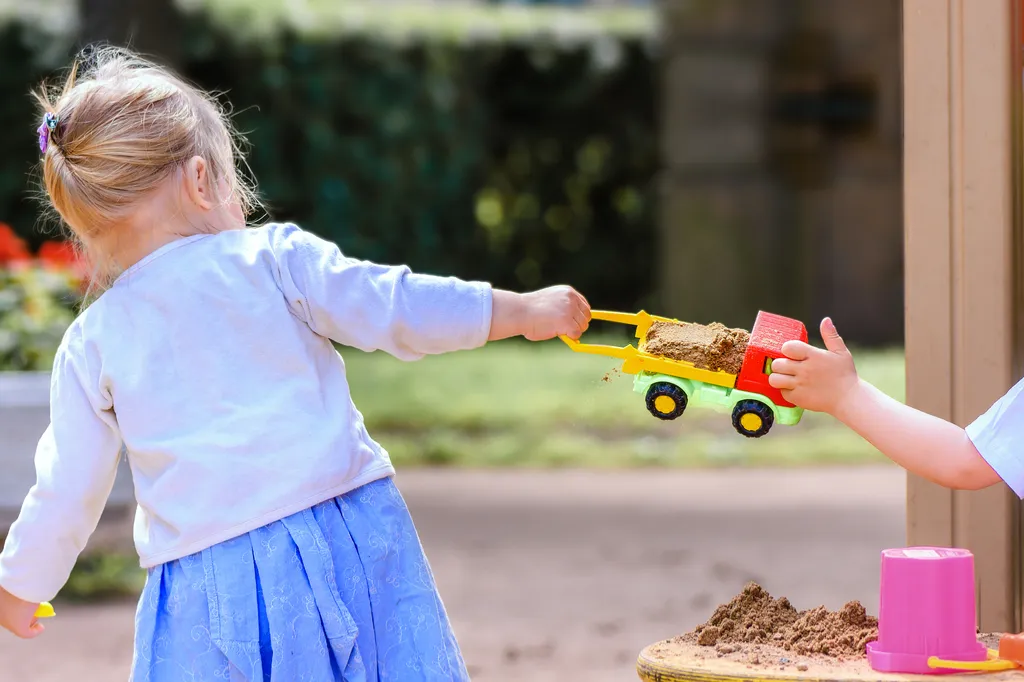
While all kids can behave selfishly from time to time, telling them they are inherently selfish can cause lifelong trauma.
“It’s important that parents are clear that they are disappointed with what the child did, not who they are as a person,” says Loewenstein. “This type of clarifying language is very important.”
3
“You don’t feel that way.”
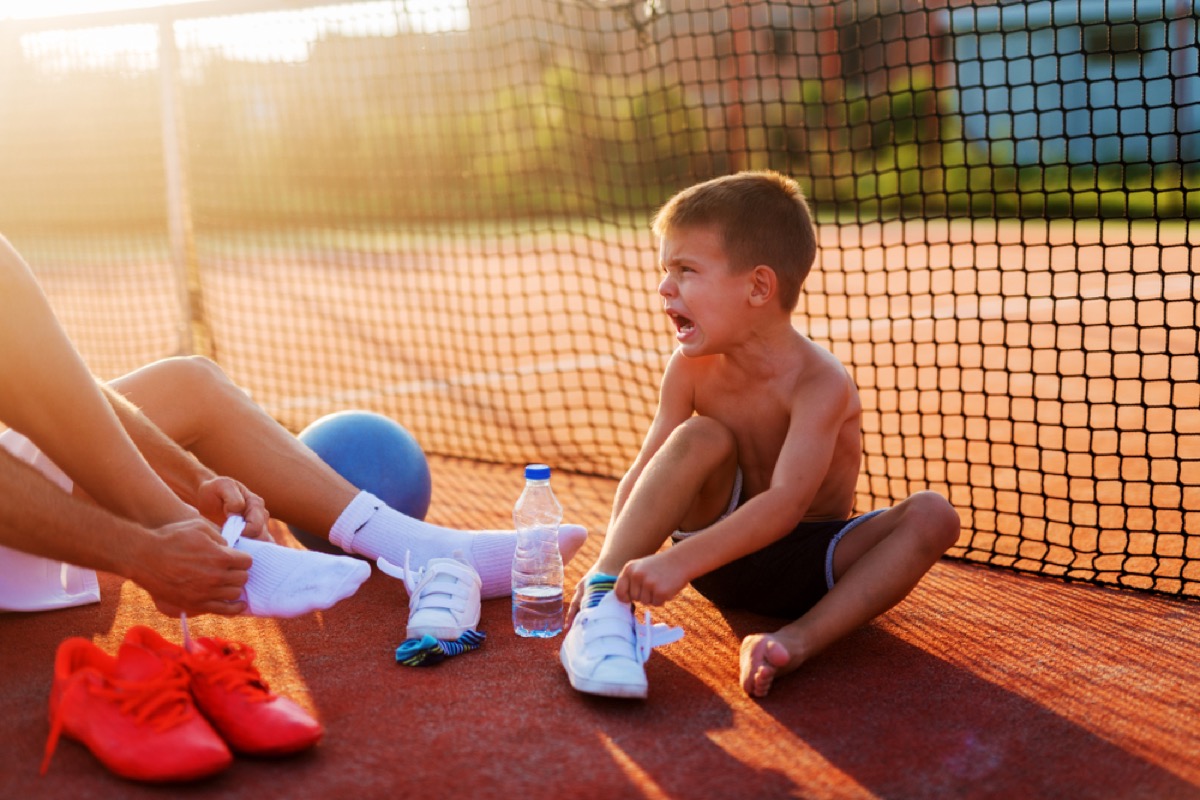
Even if your kid is saying something that you believe to be less than completely true like, “I hate you,” it’s still important that you don’t try to dismiss their feelings.
“‘You don’t feel that way’ is one of the worst things parents can say to their children,” says Karen R. Koenig, MEd, LCSW. “Parents should validate children’s feelings even if they don’t agree with them or wish they didn’t feel that way.” And if you want to improve your parenting skills, avoid the 23 Biggest Parenting Mistakes, According to Child Psychotherapists.
4
“I wish you’d never been born.”
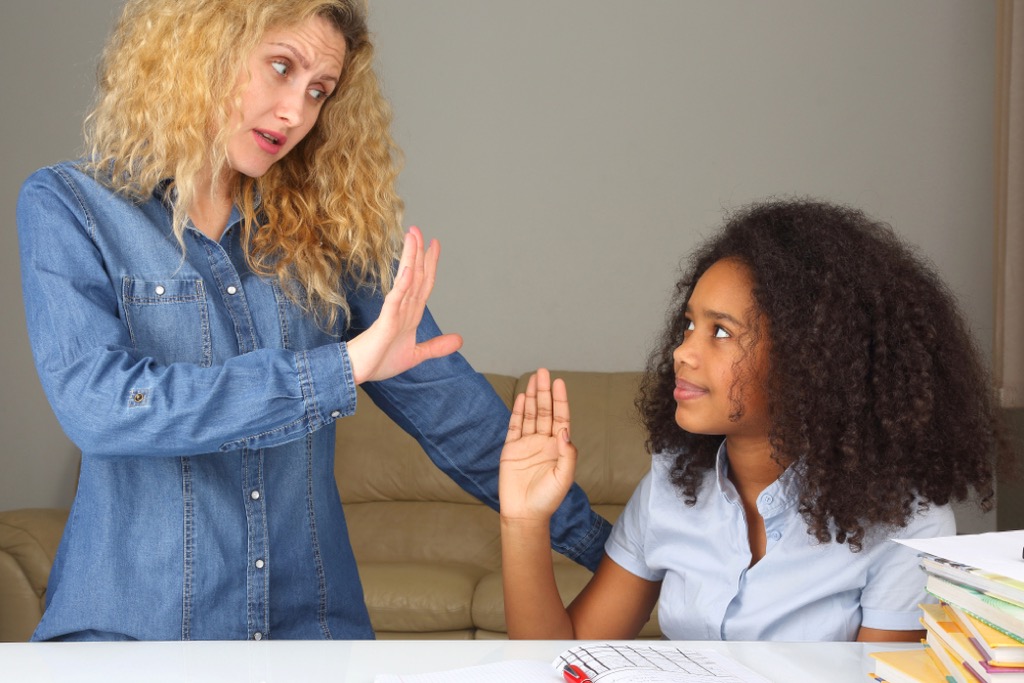
No matter how frustrated you are with your child, it’s never acceptable to go as far as telling them that you wish they hadn’t been born.
“I’ve known clients who’ve been told this and were scarred for life by the remark,” says Koenig. When you’re feeling frustrated enough to say something this hurtful, simply remove yourself from the situation until you’ve cooled down enough to respond in a more level-headed manner.
5
“Why can’t you be more like your sibling?”
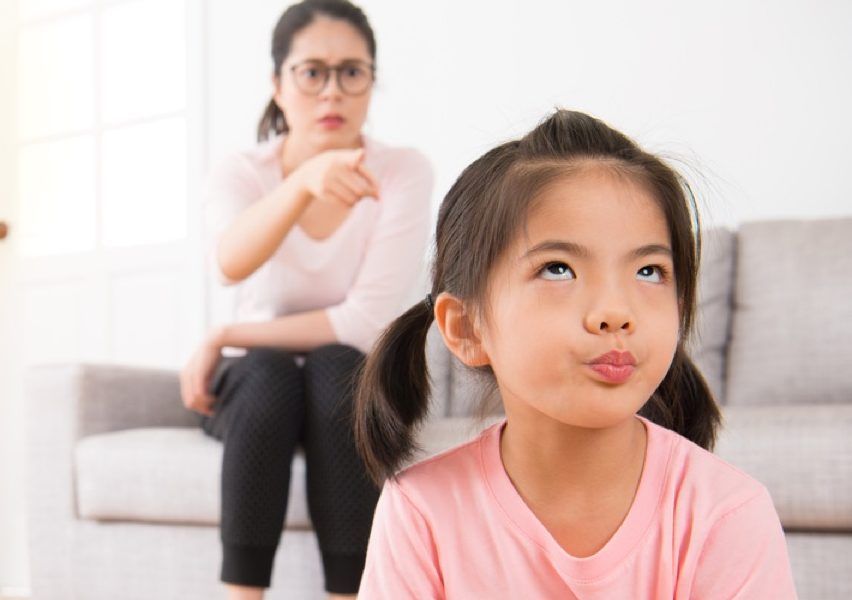
Sibling rivalry is just another part of growing up in many families, but when parents actively promote it between their children, it’s always damaging.
“This can cause a child to believe they are not good enough at their core, and that who they are, is defective in some way,” says psychotherapist Shirley Porter, RSW, writer for Choosing Therapy, who notes that this can also cause conflict with the sibling you’re putting on a pedestal.
6
“You’re stupid.”
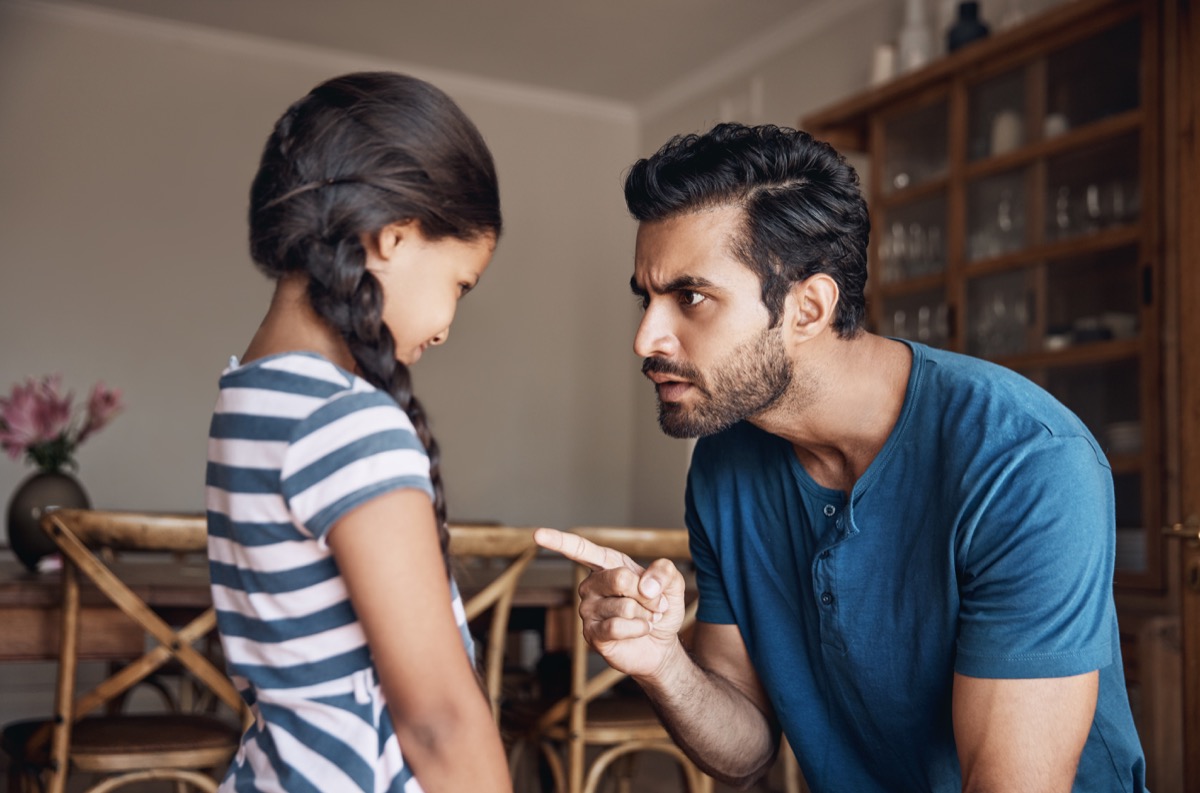
Unless you want to permanently harm your relationship with your children, don’t ever tell them that they’re stupid.
“You might be saying it in moments of frustration or anger, but the injury can last for many years,” says Porter. “It can shift a child’s core beliefs about themselves in a negative direction.”
7
“You’re the man of the house.”
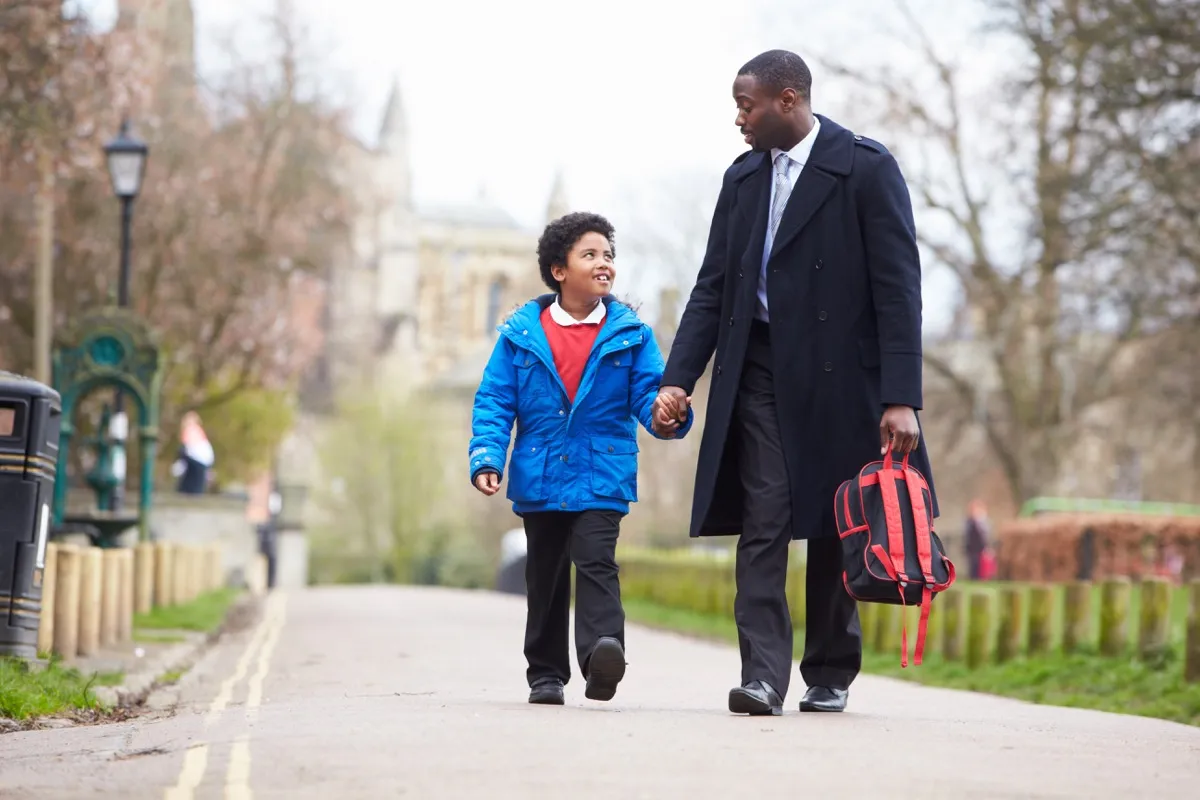
Even if you mean it in a joking way, saying this to your son can put an undue burden on him, especially when they’re already dealing with the stress of a family split.
“This puts too much pressure on the child to fulfill a role he cannot and should not yet [have],” says Kasi Howard, PsyD. “It’s the equivalent of a chef going on break and telling the dishwasher, ‘you’re cooking now.’”
8
“No dessert until you’ve finished dinner.”

Of course, you don’t want your kids to waste food. That said, enforcing the “clean plate club” rule at your house can have serious ramifications in terms of your kid’s autonomy and eating habits.
“You’re already having difficulty getting your child to eat their food, and this actually increases your child’s perceived threat and creates an increased power differential,” explains registered play therapist Sarah Rees. Instead, Rees recommends telling children that they can choose to have dessert if they choose to finish their food first.
9
“Hurry up.”
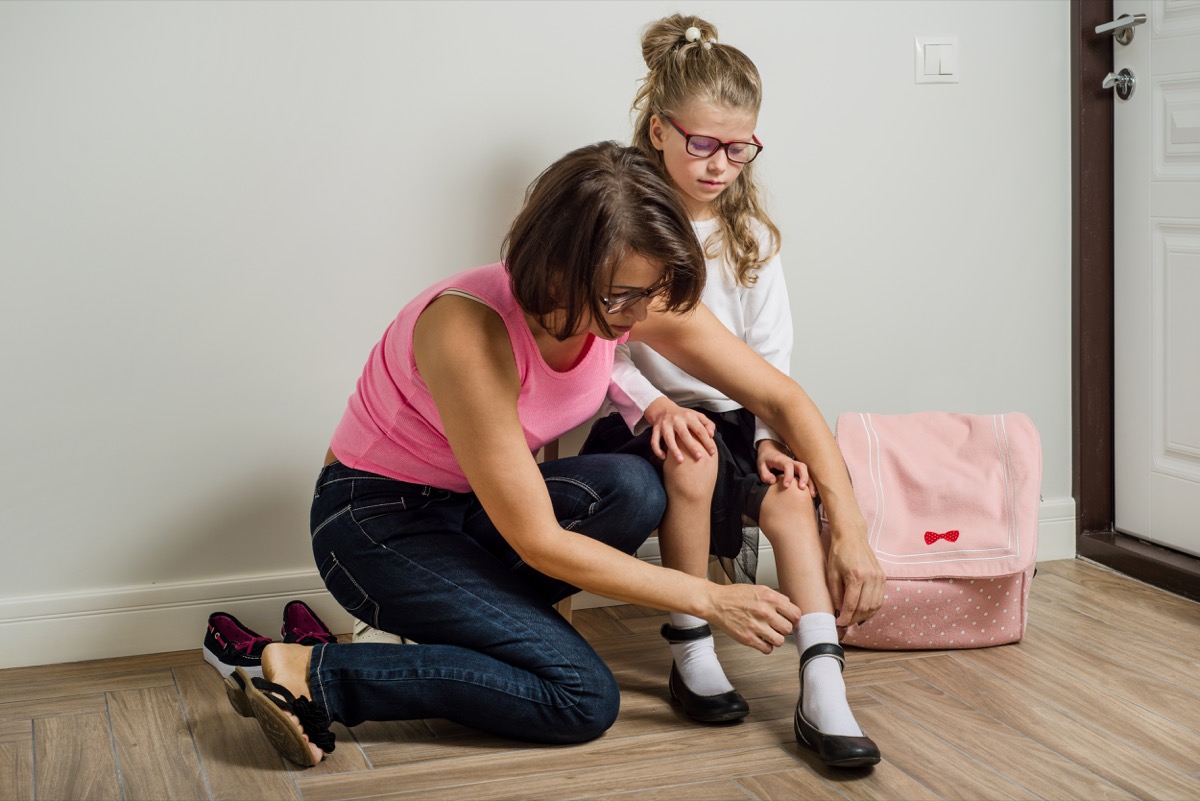
It may be frustrating to have your kids take forever to get out the door, but telling them to hurry up isn’t actually going to motivate them.
“This phrase creates more stress and anxiety in children, who are most likely already doing their best to find their shoes to get out the door,” says Rees. She says you can motivate your kids by making it a game of who can get ready the fastest. And if you do want to set your kids up for success, start by imparting these 33 Life Skills Every Parent Should Teach Their Kids.
10
“What did you do to yourself?”
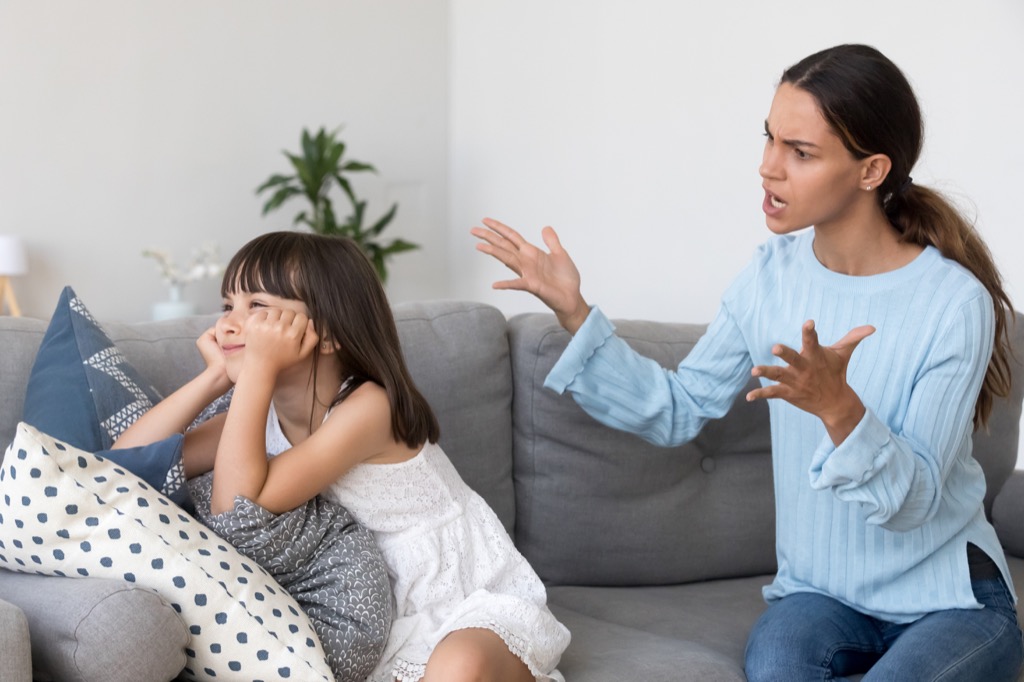
While you might not be a fan of your kid’s new hair color or nose ring, when you start a conversation with an accusatory question like this, you’re shutting down communication right off the bat.
“Your child will constantly feel judged and not good enough,” explains Nneka Symister, LCSW. “Children can believe that if they are not good enough for their parent, they will not be good enough for anyone.”
11
“Stop crying.”
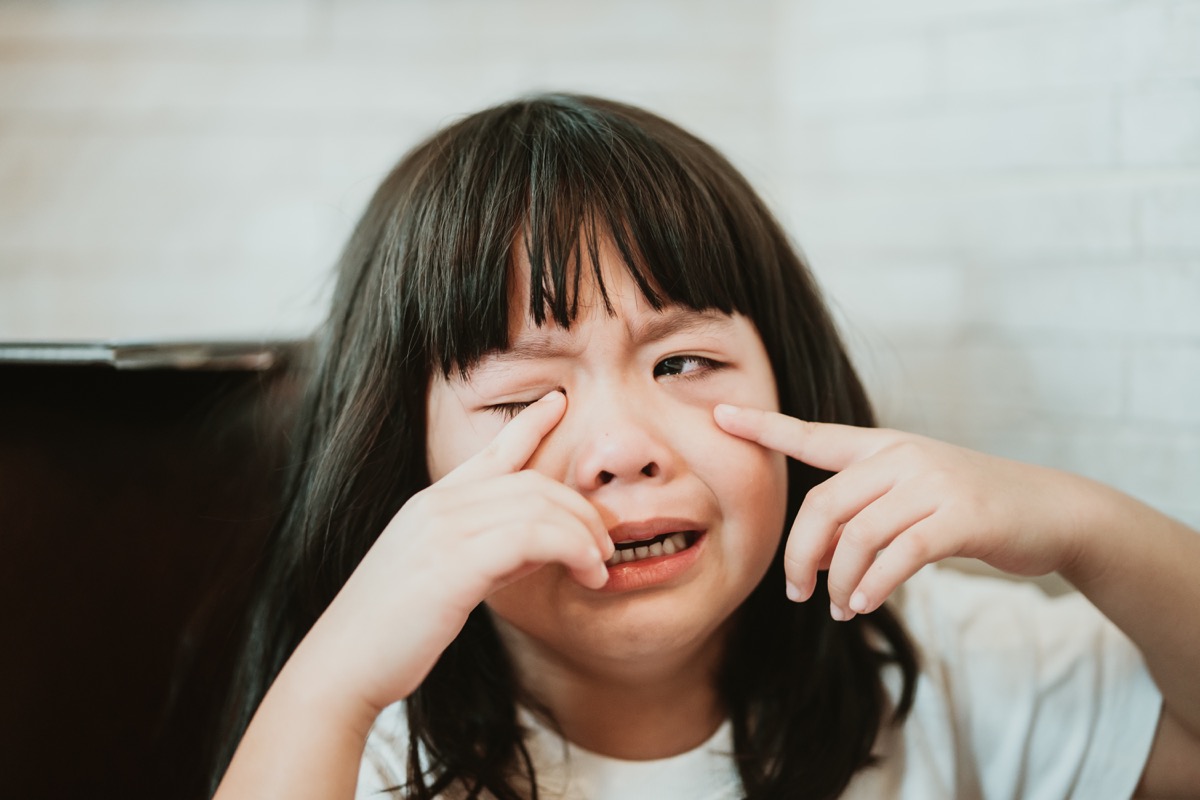
Have you ever been told to stop crying? Did it ever work?
“It can be confusing to them to hear that what they are feeling isn’t ok with you, and can also make them less likely to want to come to tell you how they are feeling in the future if they are struggling with something,” explains clinical psychologist Danielle Harris, PsyD, LMFT.
12
“Don’t be a baby.”
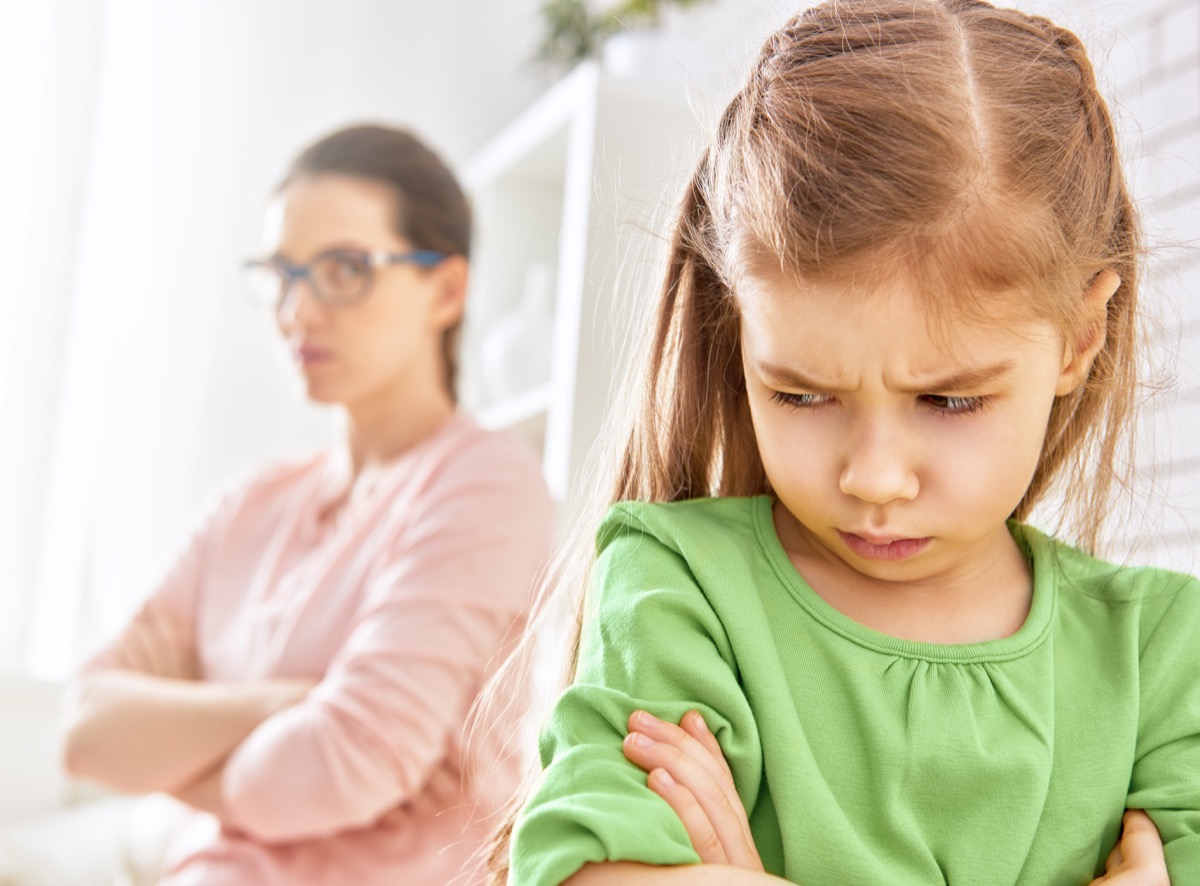
Maturity comes from experience—not from telling your kids that they’re acting immature.
“Saying things like this can be damaging to children because it is invalidating their feelings,” explains Harris, who says that doing so “teaches your child that their feelings don’t matter.”
13
“You’re the best at that!”
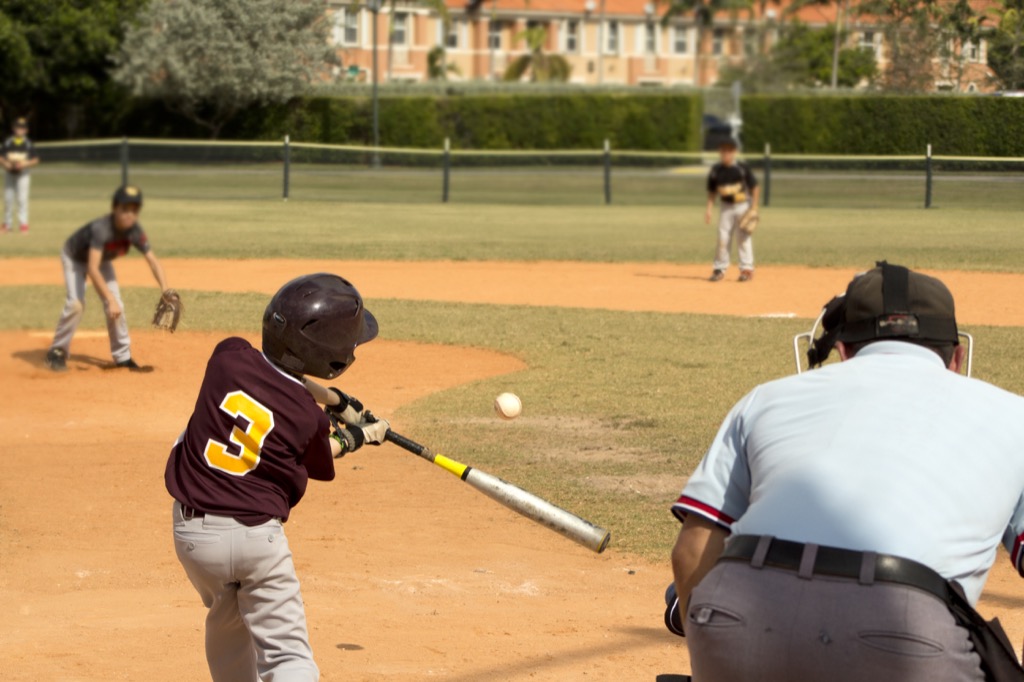
Telling your kids they’re already the best at something can be more problematic than not praising them at all.
“This pressure to be the best, to constantly excel, is a major contributing factor to childhood anxiety and can lead to fear of failure, worries about disappointing you, and an unwillingness to try new things,” says national certified counselor Tanya Peterson of Choosing Therapy.
14
“You were an accident.”

Even if your kids weren’t planned, telling them that can cause long-lasting emotional scars. And “adding ‘we love you anyway,’ doesn’t help,” says licensed psychotherapist Nicki Nance, PhD. “People want to be loved straight up, without a disclaimer.”
15
“You’re okay.”
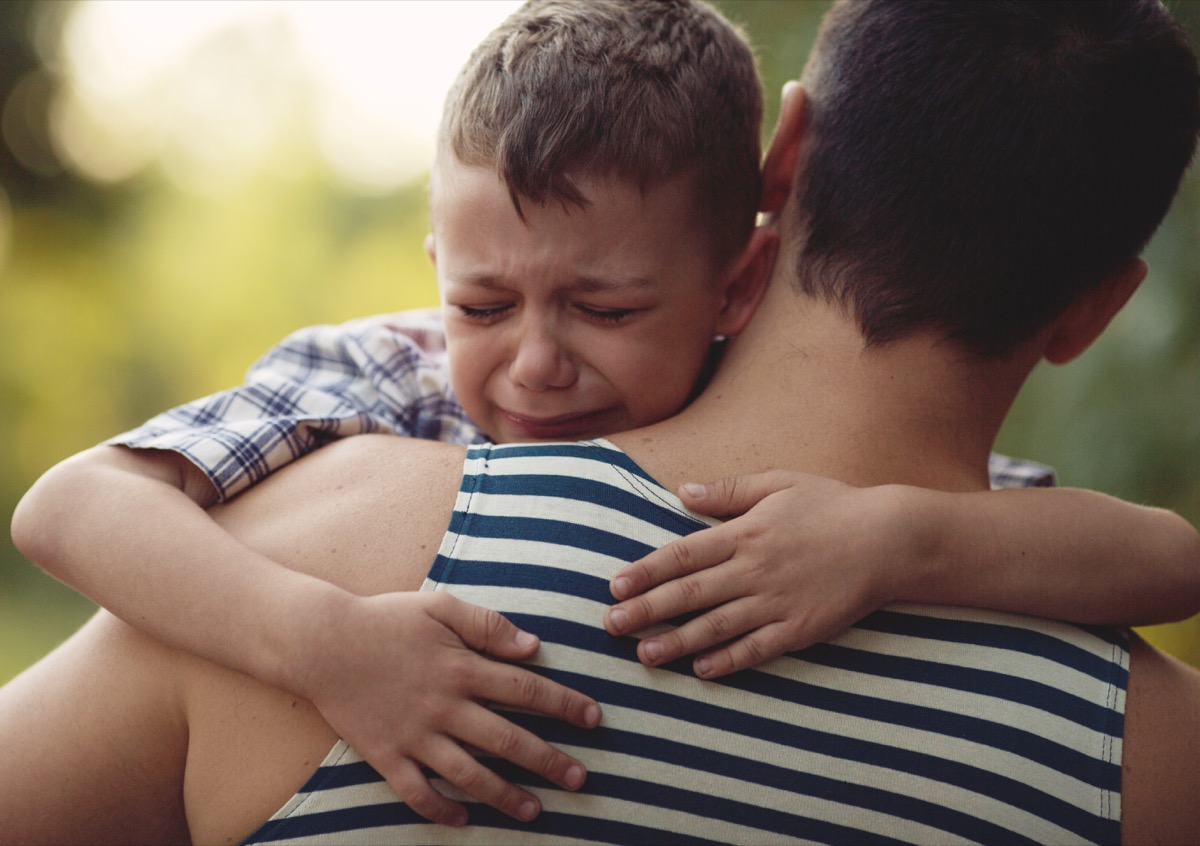
Saying “you’re okay” when someone is hurt or crying can often feel like an automatic response. However, whenever possible, avoid uttering this phrase to your kids.
“Telling kids that something does not hurt when it does challenges their reality,” says Nance. “Kids need permission to exist, to be who they are, to think, feel, and make mistakes.”
16
“Why can’t you do anything right?”
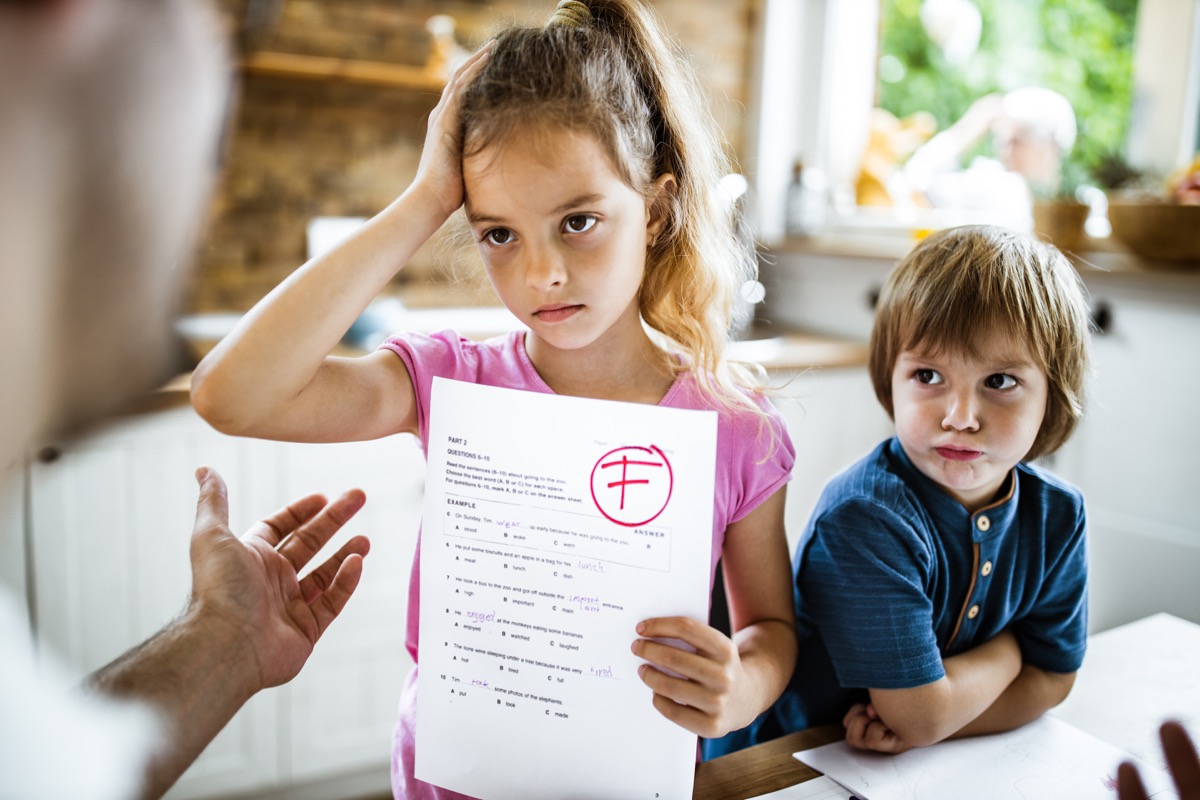
While it may sound like a question, this is more of an accusatory statement—and one that won’t likely yield a positive response. “Parents who say this to young kids are surprisingly surprised when they can’t get their adolescents to do anything,” says Nance.
17
“What’s wrong with you?”
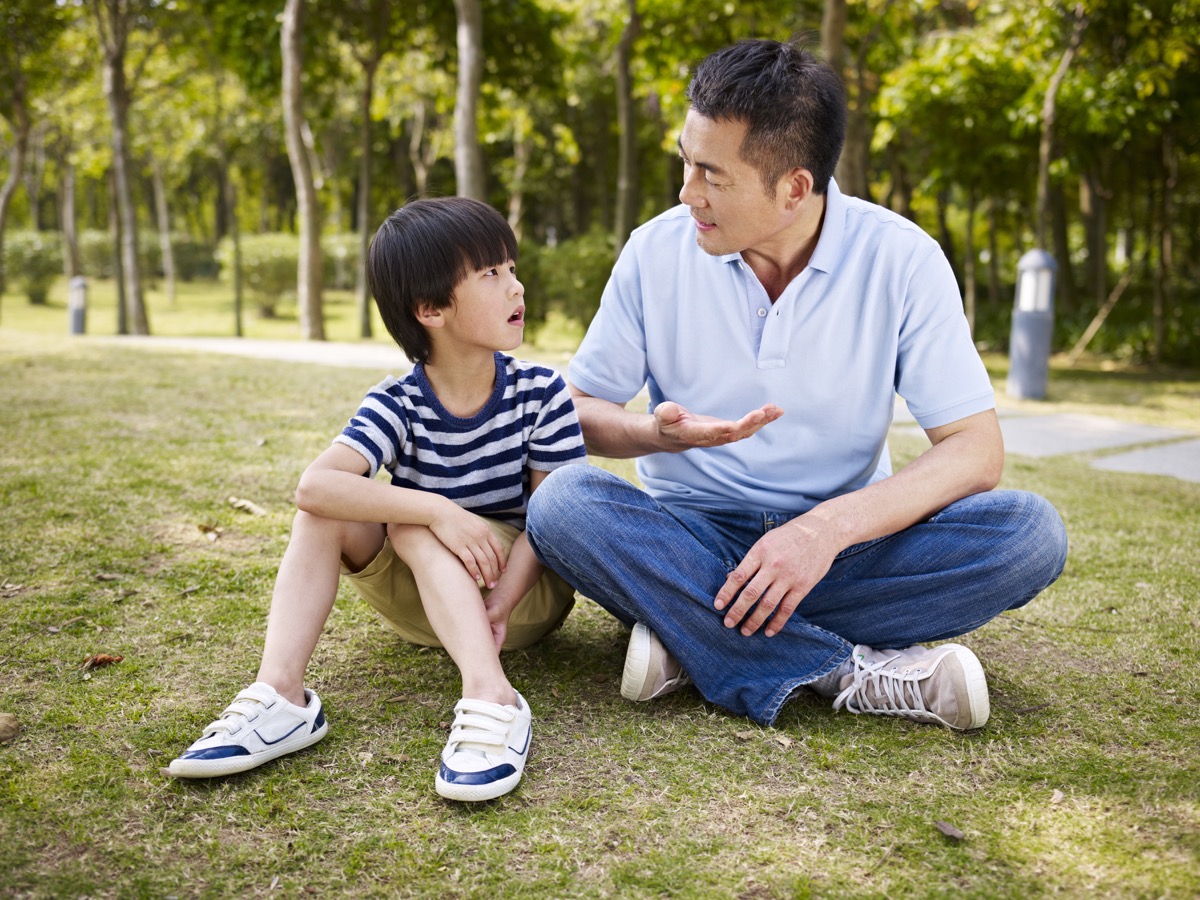
It can be tempting to utter phrases like this during moments of frustration, but make no mistake: telling your kids there’s something wrong with them will always do more harm than good.
“When we respond out of frustration, it teaches our children to question if something is, in fact, wrong with them, and they seek to avoid this type of response from you in the future,” explains Meghan Marcum, PsyD, chief clinical officer at A Better Life Recovery.
18
“I don’t believe you.”
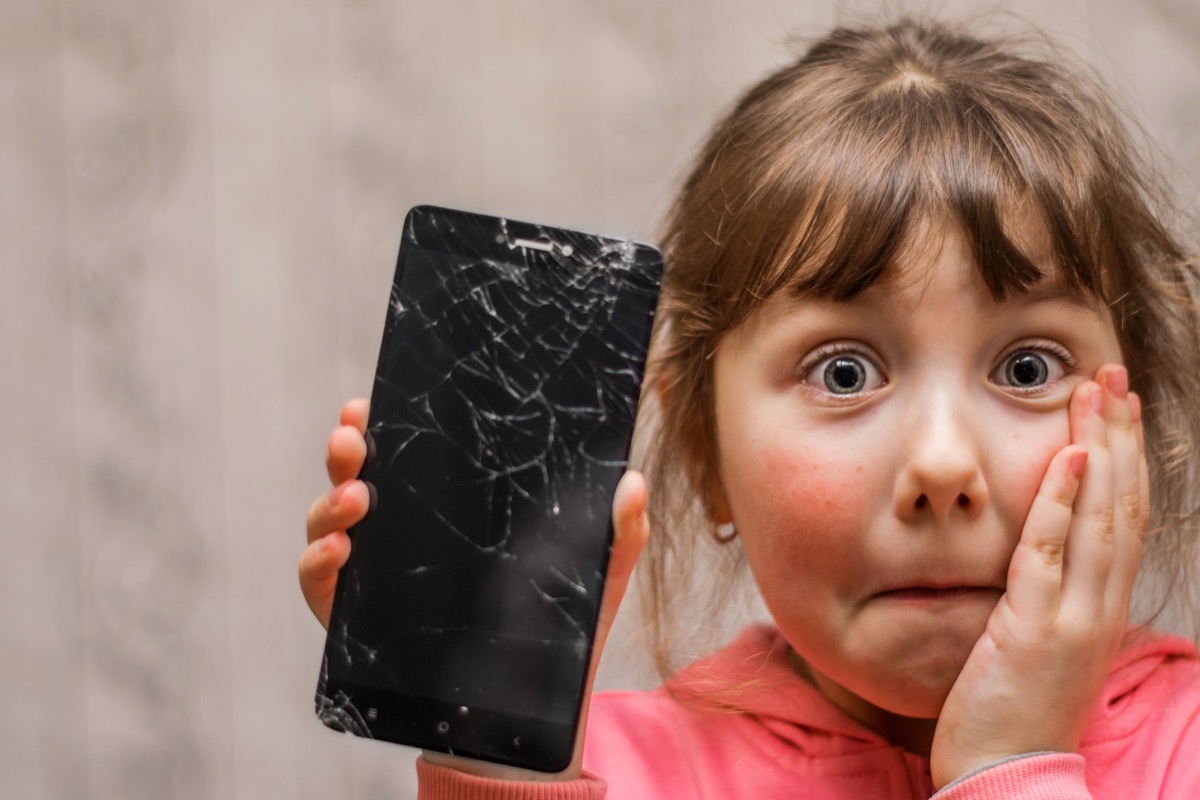
If you want your kids to feel comfortable opening up to you, you’d be wise to start from a place of acceptance and belief when they try to tell you something.
“When you make this kind of statement, you initiate distrust by assuming your child is lying, and this can severely damage your relationship,” says Marcum, who notes that kids will quickly learn to hide their actions from you because they no longer feel safe opening up. Instead, she recommends asking children to provide more details about what happened, which can help foster a productive conversation.
19
“There’s nothing to be afraid of.”

We all have our own fears and worries, and telling your kids they shouldn’t be afraid of something can be an invalidating experience.
“Not only are you dismissing their feelings, but you’re sending the message that something is wrong with them,” says therapist James Killian, LPC, owner of Arcadian Counseling.
20
“You’re lazy.”

Do kids act lazy from time to time? Sure. However, telling a kid that they are inherently lazy will only make them feel like there’s nothing they can do to change that.
“Parents should never give their child a label,” says national certified counselor Katheryn Ely, JD, host of the “Imperfect Thriving” podcast. “This can be used by the child to form a picture or identity of herself that leaves out so many other pieces of who the child is.”
21
“You have to give them a hug or kiss.”
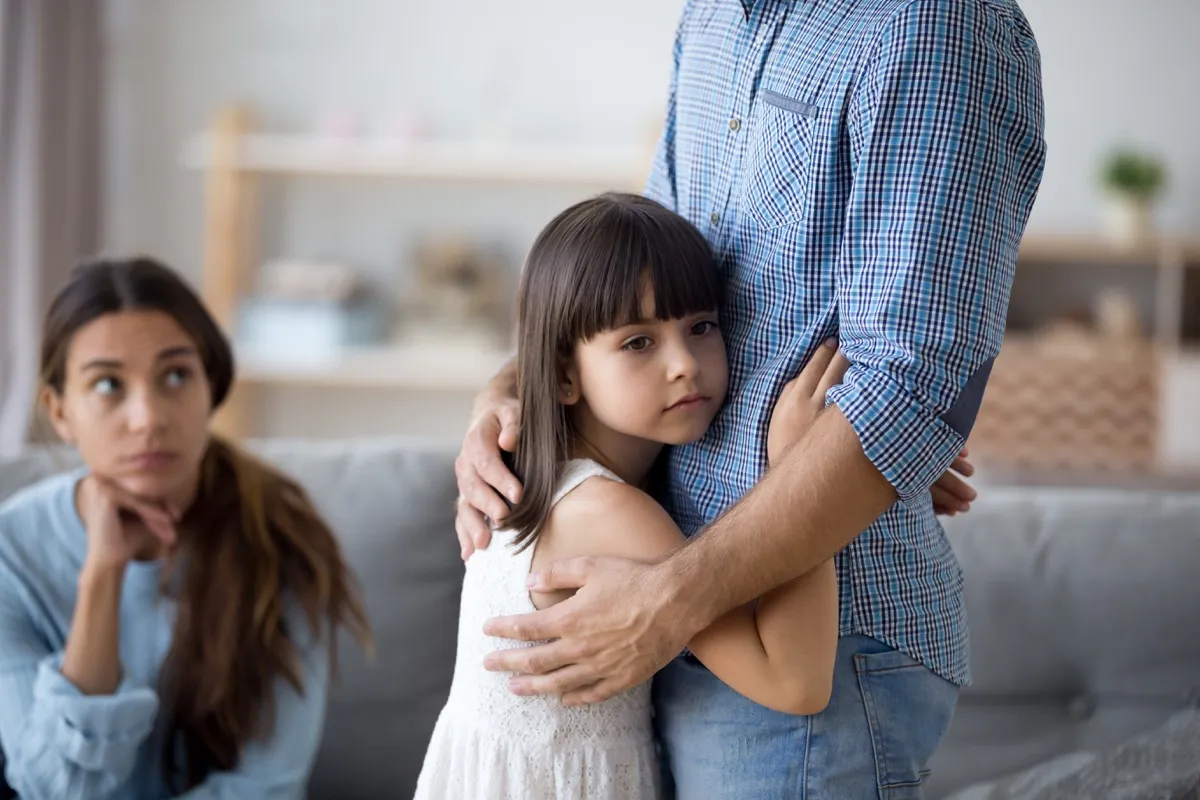
While you may want your kids to be affectionate toward friends or family members, pushing them to give hugs or kisses is inherently disrespectful of their personal boundaries.
“Insisting they conform to others’ wishes regarding personal space and the expression of affection can translate into poor boundaries in future situations, which could be more dangerous and have negative consequences,” explains licensed professional counselor Natalie Mica, MEd.
22
“Your friends don’t do that.”
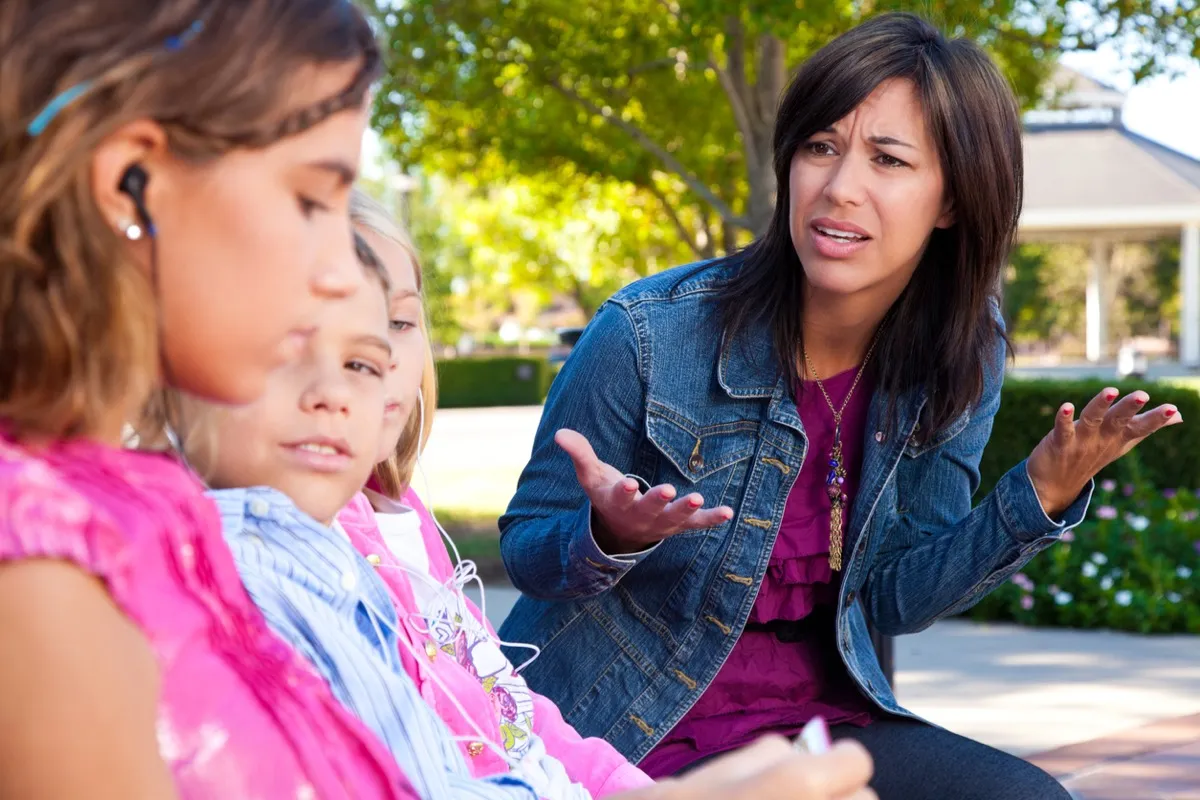
If you want your kids to avoid peer pressure at school, you can’t pressure them to do things by comparing them to their peers at home.
“Over time, this reduces self-esteem and their sense of personal agency,” explains Mica, who notes that this can also foster unhealthy competition with others.
23
“I wouldn’t do that if I were you.”

Making your children second-guess their own choices—especially with language that seems threatening—can have serious long-term consequences.
When you utter this phrase, “It’s sending the message that you don’t have faith in their decision-making abilities,” explains relationship expert Jaime Bronstein, LCSW.
24
“You should have done better.”

Sure, your kid could have gotten an A instead of a B+, but telling them their efforts weren’t enough can make them feel bad about their abilities—and who they are as people.
“It’s much better to send a message of unconditional love so that your children know that you love them no matter what, and that you believe that they did the best they could,” says Bronstein, who notes that telling them they could have done better can lead to them always feeling inadequate.
25
“You should be ashamed”

Your kid is bound to feel ashamed from time to time—but it shouldn’t be because you tell them they should feel that way.
“Shaming comes from a place of entitlement—that your feelings are more important than your child’s,” explains clinical social worker BriAnna Simmons, who notes that shaming behavior is “internalized on a number of levels that a child cannot sift through.”